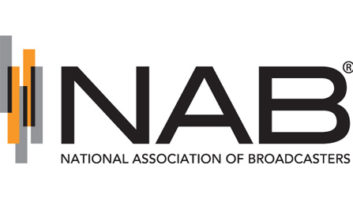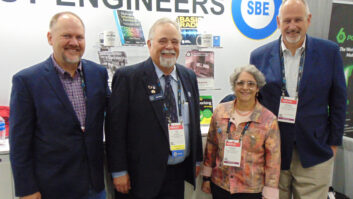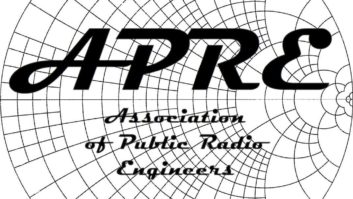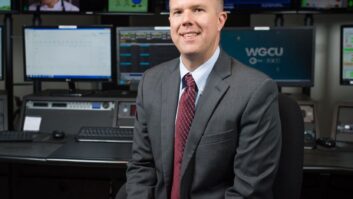Contract engineers have been and will continue to be a fail-safe component of broadcast radio engineering.
Never mind years of broadcast deregulation and consolidation or the rapid advent of automation from the transmitter site to the studio, all which effectively reduced the need for full-time staff engineers at radio stations and forced some into the field on their own — or out of the industry.
By all accounts, based on interviews with contract engineers across the country in various market sizes, business could not be better. But the profession is not without its share of perils.
One of particular concern cited across the board is a lack of young engineers who are experienced in RF or even interested in the field.
No doors closed
“There will always be room for the contract engineer,” said Jim Dalke, a veteran broadcast contract engineer in the Seattle area.
Dalke, of Dalke Broadcast Services Inc. in Bellevue, Wash., echoed observations of other broadcast contract engineers who said the success of their respective businesses is built around the nuances of the markets in which they work, by sometimes diversifying outside of broadcast but related technology areas, and, of course, keeping up with technology developments.
“We just have to change our work skills as time moves on,” Dalke said.
Dalke, now in his 60s, earned his ham radio license when he was 14. He said education is among the factors needed to be successful.
“You have to do that,” he said. One of the first technology changes Dalke recalled is the transition from tubes to transistors to solid state. “I saw guys that never made the transition. They just got out of the business.”
Another element to success Dalke noted is the entrepreneurial spirit, something he and many other contract engineers exude.
“As a contract engineer, I’m doing today what I dreamed about as a kid,” he said. “For me, it is perfect. Absolutely. In particular for me, it is because there are fewer and fewer people in RF.”
Dalke is a senior member of the SBE, a Certified Professional Broadcast Engineer and a Certified AM Directional Specialist. He works with small to large radio operations, including Disney AM KKDZ, which is in the process of being converted to AM HD.
“I’m in the middle of it,” he said. “It’s a challenge, but that’s what I like to do.”
High on the list of Dalke’s concerns is the lack of interest in learning RF by up-and-coming engineers.
Digital audio, iPods
“Digital audio and the iPods, the kids associate closely with it; but when it comes to RF they are lost,” he said.
“Every now and then, I’ll get a call from a radio station out in the boondocks that is off the air,” Dalke said. The transmitter is down or there is some other problem. The owner tells Dalke the engineer working with the station is out of town.
“He’ll ask, ‘Can you come out to help me?’” Dalke said. “He’s almost desperate because there are relatively few contract engineers who have enough knowledge to go into such a situation and bail the guy out.”
John Tiedeck, another veteran radio contract engineer, started in engineering in the mid-1970s as a staff engineer at WCOJ(AM) in Coatesville, Pa.. He now works in Pennsylvania, Delaware and New Jersey and believes the contract engineering profession will remain steadfast.
Tiedeck, based in Media, Pa., spent some 15 years working for manufacturers including the old Wilkinson transmitter manufacturer, QEI, LPB and Fidelipac before getting back into full-time contracting in 1993. He said it is important for anyone new in contract work to maintain a database of equipment documentation and to buy their own test equipment.
“I think there will always be a need for the contract engineer,” Tiedeck said. “There will always be the mom-and-pop station that can’t afford and does not need or want a full-time engineer. And the big guys do occasionally seek outside help.”
Tiedeck keeps busy with a mix of radio operations and a mix of work from transmitters to studio maintenance and build out. While he thinks HD “will eventually trickle down” to mom-and-pop stations, he is doing some HD testing at Clear Channel WILM(AM) in Wilmington, Del.
Role of HD
HD plays a big role in the business of James Boyd of Boyd Broadcast Technical Service of Tualatin, Ore., near Portland. In addition to radio stations throughout Oregon, Washington and Idaho, he is a contractor for Harris Corp. and does installations and checkouts for the manufacturer.
“I am deeply involved in HD,” he said. “I had the opportunity to put Portland’s first HD on the air at KGON owned by Entercom. And my work for Harris is mostly HD install and checkout.”
Boyd, 60, obtained his amateur radio license when he was 13; he has been a broadcast engineer for 42 years and went full time as a contractor in 1991. He said his current business is the “best time” in his career.
“These are exciting times,” he said. “Absolutely. I love it. This is the greatest business to be in — the broadcast profession in general. I’ve never had a real job in my life,” he said jokingly. “This is play. Not only that, we are at the most exciting time in the 42 years that I’ve been in this business.”
Boyd, who holds a Lifetime General Radio License, said he does “a lot” of RF work and “a fair amount” of studio work.
“I don’t think contract engineering is going to go away,” he said. “And there are fewer people doing it. The work load will likely increase.”
For those considering a move into contract engineering, Boyd, too, recommends continuing education and an investment in test equipment, even though the gear can be expensive.
But don’t expect to move in on Boyd’s turf.
“I don’t intend to quit working,” he said. “I may slow down, but as long as my health is good, I’ll work to the day I drop.”
Contract vs. full time
Mac McGaha is an engineer who chooses contract work over full time.
“I like my business better now than I think I ever have,” he said. “There are times when I think I am way too busy, and sometimes I think I am not busy enough. But for the most part, I’m pretty comfortable. You’ve got to manage it.”
McGaha, 61, of Nampa, Idaho, focuses on the southwest part of that state as well as southeast Oregon. He has been in the contract business for 20 years.
“I was a truck driver, and I was getting real tired of the truck companies I was working for going out of business,” McGaha said. “I was a ham radio operator, also, and a friend who was a ham who owned a radio station had an engineer who needed some help.
“The first available night, we went up to the mountain and looked at the FM transmitters,” McGaha said. “We shut the thing down and looked in the back door. I said ‘I know what everything is in there; it’s just bigger than what I’m used to.’ And I’ve been doing it every since.”
McGaha feels optimistic about his future but expressed concern about the reason: He said he is picking up business because there are fewer contract engineers.
“I’m not seeing new people coming into the business,” he said. “The interest is mostly in computers.”
No limits for engineers
Bob Perry has been a contract engineer since 1988 and in the business for 30 years since starting at his college radio station. He said the engineering field is wide open, whether a person wants to be a contractor or work for a station.
“It’s a good opportunity for anybody interested in electronics and looking for a challenge,” he said. “I love what I do. If I didn’t, I wouldn’t be doing it. I was able to take a hobby and actually turn it into a profession which has worked out rather well.”
Perry, 47, whose company is RDP Technical Services of Auburn, Maine, and who holds Certified Broadcast Technologist certification from the SBE, said his markets are good for him because there are a number of small stations that cannot afford a full-time engineer.
He keeps busy with 14 Citadel-owned stations in Maine and New Hampshire. He said he does “a little bit of everything” from studio work to RF. HD uptake is slow.
Because of his concern about the lack of new people getting into broadcast radio engineer, Perry speaks at local high schools drumming up interest. A ham operator himself, he said he sees some hams who want to go beyond the amateur status.
Jeff Rosenberg, 40, who operates Modulation Magic in Newton Highlands, Mass., near Boston, has taken some what of a different tactic to handle the ebbs and flow of the radio engineering business.
While he said that HD has been the “mainstay” of his business for the past year, with some large installs and another on the calendar, he has ventured into sound and industrial install business.
“When I’m not busy, I’ll go install a telephone system,” Rosenberg said. “I’ll put in a computer network. I do a lot of sound systems that end up in restaurants and nightclubs. Why not? In order to do turnkey product, I need to do enough volume to make manufacturers happy.”
And Rosenberg said being a broadcast engineer gives him a heads-up on other install engineers. Rosenberg, who holds CBNT certification from SBE, is a member of the Audio Engineering Society and is past president of the Boston chapter. He also is a certified integrator for Wheatstone/Audioarts and a certified HD integrator for Broadcast Electronics.
‘Hooked’ on engineering
Rosenberg said he “was hooked” by engineering while attending Curry College in Milton, Mass., in the 1980s where he eventually became the first student station engineer. He credits the late Jim Rakiey, Boston-area engineer, with his “training-by-fire” education in the beginning.
“I started doing contracting gigs right away while I was in college,” Rosenberg said. “Anything anybody would pay me to do I would go out and do.”
He said he had another full-time job from which he learned how to run a business and did contracting on the side until the part-time work grew into full-time.
For anybody looking to get into full-time contract work, Rosenberg’s advice is get business training outside the industry. “I worked retail. I let a corporation pay for my accounting education, my bookkeeping education.”
As other contractors have talked about the ups and downs of work, Rosenberg said you have to balance your budget. “You have to plan for the rainy day,” he said.
Looking ahead, Rosenberg said the prospects of engineers coming along, especially those in RF, are not too good. He has trouble finding people to work with him, and he is working with a student, one of his two part-time employees.
As for the amount of work to come, he believes that as the big groups develop their stations, there will be more work for remotes and more staff as the business shifts back toward more localism.
Like Rosenberg, Matt Lightner, 30, president of Lightner Electronics in Claysburg, Pa., said diversification is important to avoid the ups and downs in the broadcast business. His company does audio/visual contracting and computer networking to fill in the gaps.
Lightner’s career in broadcast engineer started at the age of 15 in 1991 when he fixed some cart machines for a friend who was an announcer at WJSM(AM/FM) in Martinsburg, Pa. At the time Lightner was repairing TVs and VCRs, something he got into when he was 12.
He started contract work in 1995, after working for a year and a half at WPRR/WVAM as chief engineer — a job he earned between his junior and senior years in high school where he studied electronics. Before leaving the station, he led the project to rebuild the studios and transmitter site. Lightner hired his first full-time employee in 1997. Today, he has seven field technicians/installers and two office personnel.
He finds he handles the RF work; he firmly believes that is where new engineers should concentrate.
RF training needed
“In today’s world it is easy to find computer technicians, but RF engineers are extremely hard to find,” Lightner said. “I’m amazed with so many technologies moving wireless, how few engineers know RF.”
Lightner is preparing to take the Certified Senior Radio Engineer certification SBE exam; he said he let his Certified Broadcast Radio Engineer certification, which he obtained in 1999 at 22, expire.
Like other engineers interviewed for this story, Lightner noted the relaxation of licensing for radio engineers.
“This devalued the engineer and led to a lot of unqualified people taking the title of engineer,” he said. “I must tell you that I’ve cleaned up a lot of disasters from unqualified engineers in the past. I’ve also seen a few cases where untrained engineers could have been killed working on high-voltage equipment without proper safety training.”
This is where the SBE stepped in with a certification program and the continuing education program of the Ennes Educational Foundation.
Barry Thomas, an SBE executive board member and vice president of radio engineering for Lincoln Financial Media Co., said SBE offers valuable resources and networking opportunities for the radio engineering community. In particular, SBE dedicated a section on its Web site to contract and consulting engineers at www.sbe.org/res_eng.php.
Included are a directory, sample contract and information about commercial and professional liability insurance.
The number of contract engineers in the market is hard to calculate. A search on the Web reveals resource lists on various sites. But Thomas said their high membership number in SBE is indicative of their strength and dedication to the profession.
Contract engineers: What issues are high on your worry list? Write us at [email protected].











